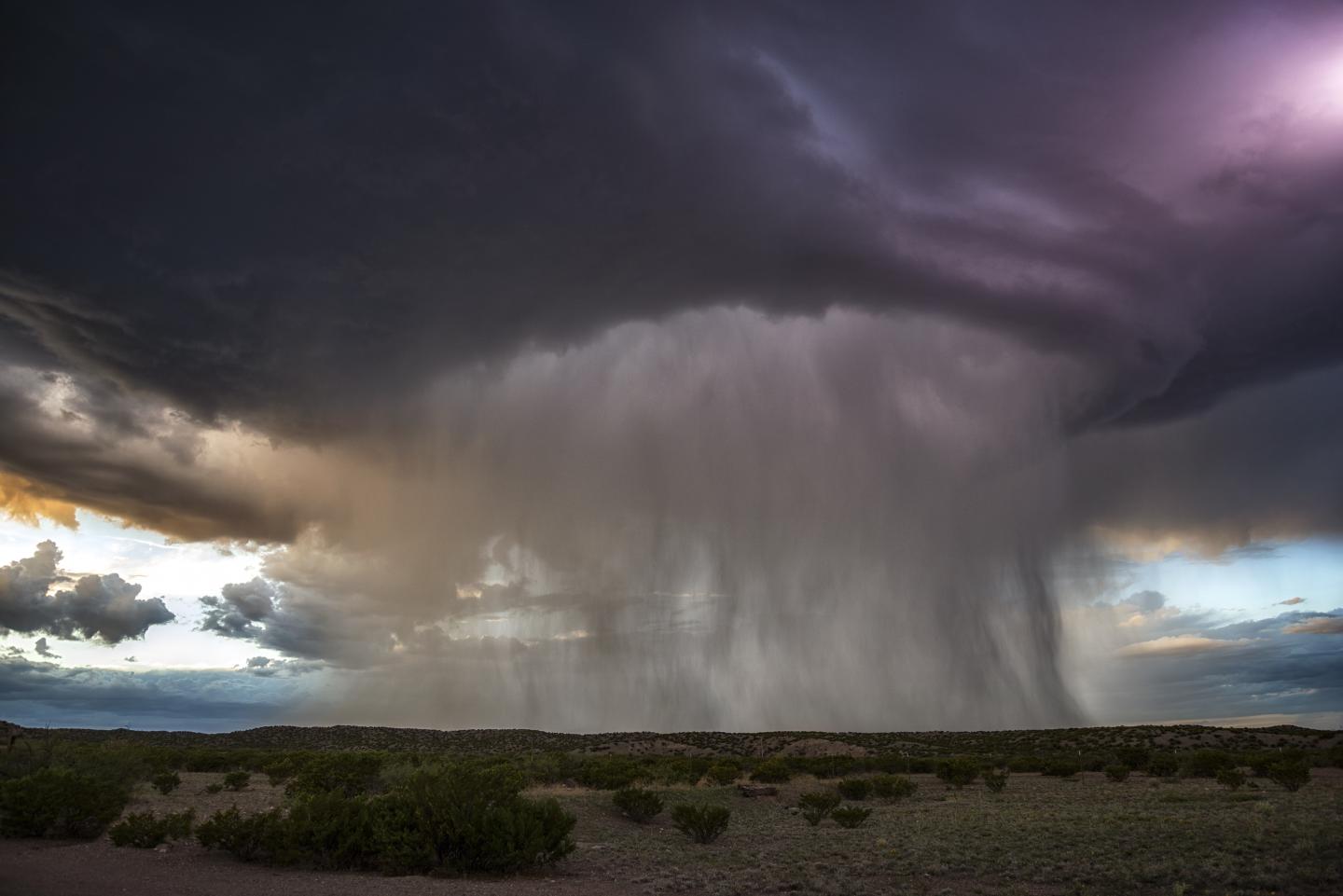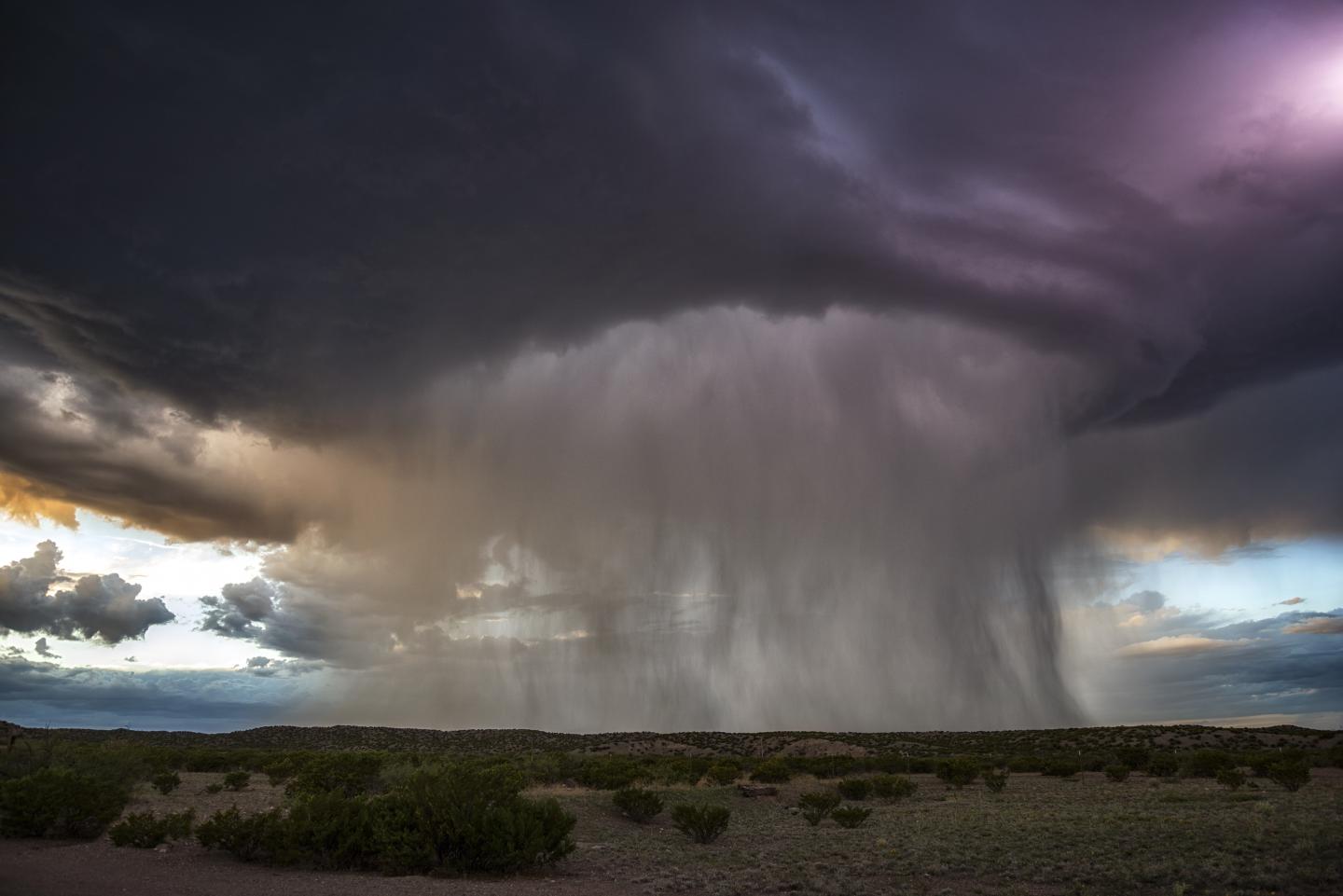
Credit: Colleen Gino
The recent intense hurricanes in the Atlantic have sharply focused attention on how climate change can exacerbate extreme weather events.
Scientific research suggests that global warming causes heavier rainfall because a hotter atmosphere can hold more moisture and warmer oceans evaporate faster feeding the atmosphere with more moisture.
However, this link between climate warming and heavy rainfall has only been examined in particular regions where moisture availability is relatively high.
Until now, no research has been undertaken that examines this relationship in dryland regions where short, sharp rainstorms are the dominant source of precipitation and where moisture availability on land is extremely limited.
To explore the links between climatic warming and rainfall in drylands, scientists from the Universities of Cardiff and Bristol analysed more than 50 years of detailed rainfall data (measured every minute) from a semi-arid drainage basin in south east Arizona exhibiting an upward trend in temperatures during that period.
The analysis demonstrated a decline in rainfall intensity, despite an increase in total rainfall over the years. Interestingly, the study shows that there is a long-term decline in heavy rainfall events (greater than 25 mm/h) and an associated increase in the number of smaller storms each delivering less rainfall.
This result is contrary to commonly held assumptions about rainfall trends under climate change.
Lead author, Dr Michael Singer from School of Earth and Ocean Sciences at Cardiff University, said: "In drylands, convective (or short, intense) rainfall controls water supply, flood risk and soil moisture but we have had little information on how atmospheric warming will affect the characteristics of such rainstorms, given the limited moisture in these areas."
Co-author, Dr Katerina Michaelides, from the School of Geographical Sciences and Cabot Institute at the University of Bristol, said: "Our findings are consistent with previous research in the Colorado Basin which has revealed a decline in runoff in the upper part of the Basin.
"Our work demonstrates that there is a more regional decline in water resources in this dryland region, which may be found in other dryland regions of the world."
Since trends in convective rainfall are not easily detected in daily rainfall records, or well-simulated by global or regional climate models, the researchers created a new tool to assess the effects of climate change on rainfall patterns and trends in dryland areas.
Their new model, STORM, simulates individual rainstorms and their expression over a river basin, and it can represent different classes of climate change over many decades.
Drs Singer and Michaelides employ STORM to show that the historical rainfall trends likely resulted in less runoff from this dryland basin, an effect they expect to have occurred at many similar basins in the region.
Dr Singer added: "We see this model as a useful tool to simulate climate change in regions and cases where traditional models and methods don't capture the trends."
###
Paper: 'Deciphering the expression of climate change within the Lower Colorado River basin by stochastic simulation of convective rainfall' by M. Bliss Singer and K. Michaelides in Environmental Research Letters
Media Contact
Shona East
[email protected]
44-117-928-8086
@BristolUni
http://www.bristol.ac.uk





